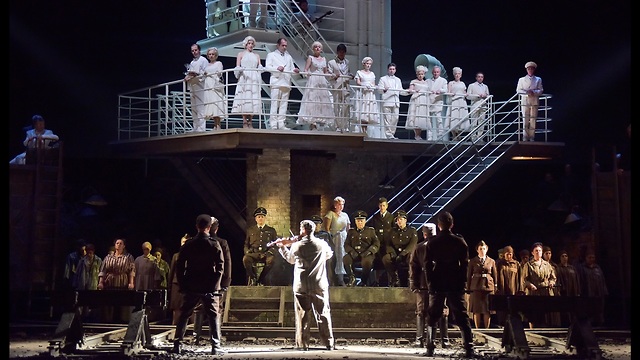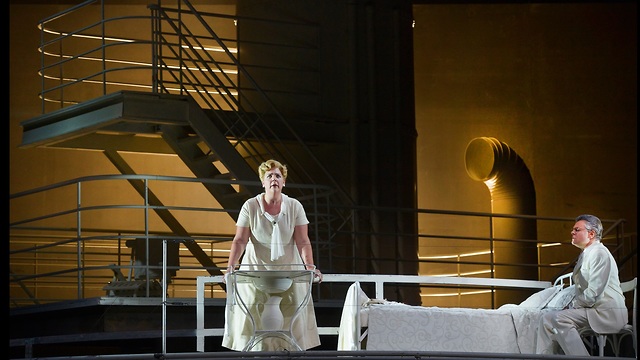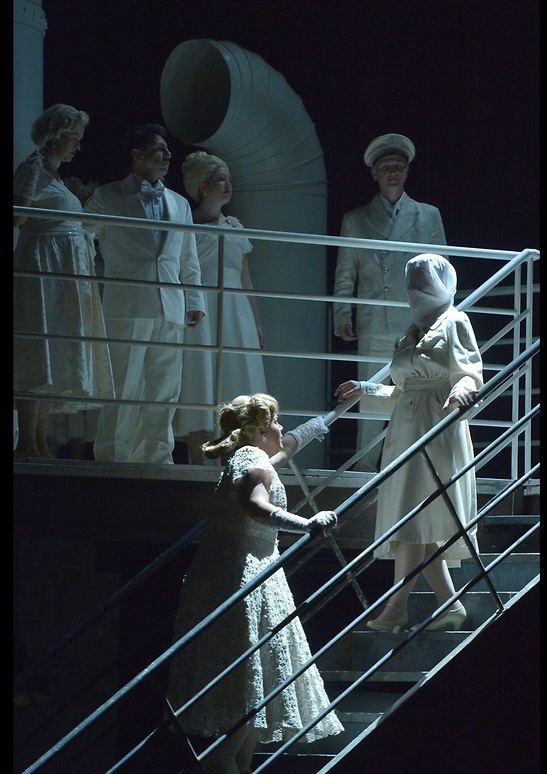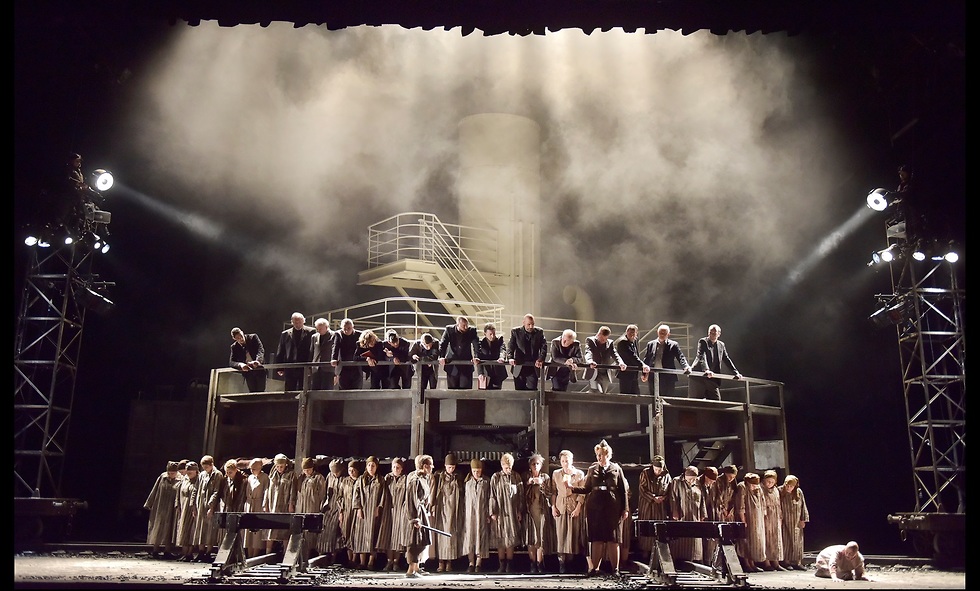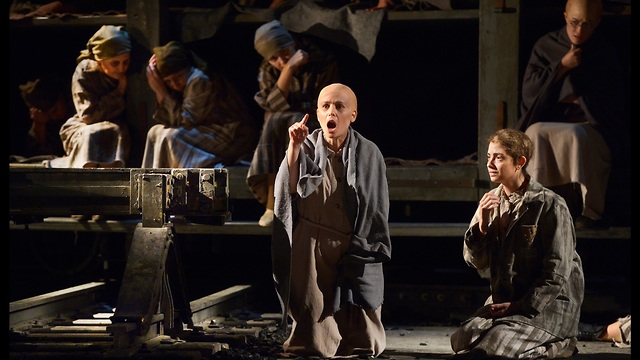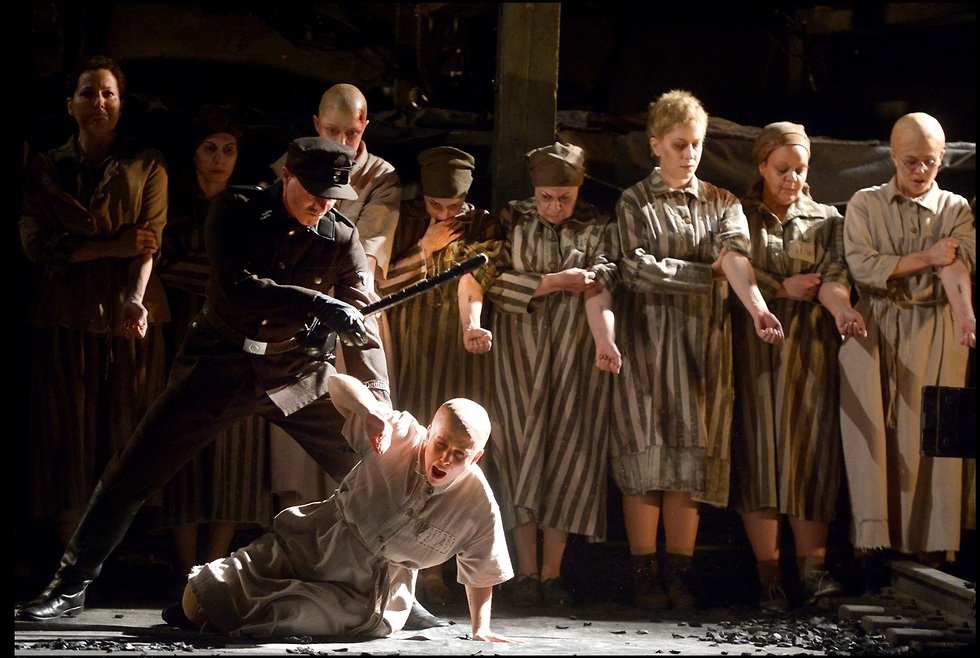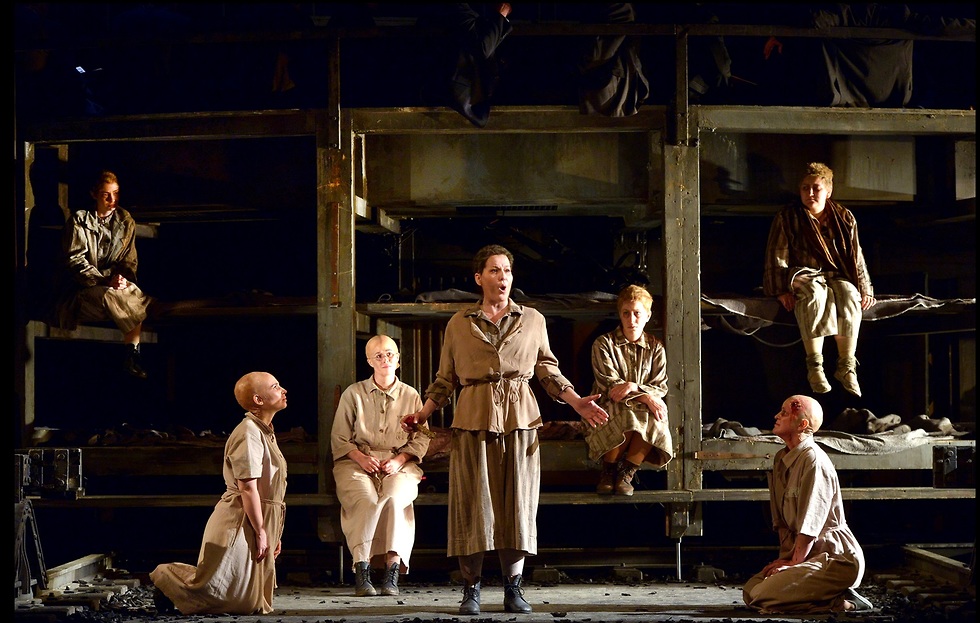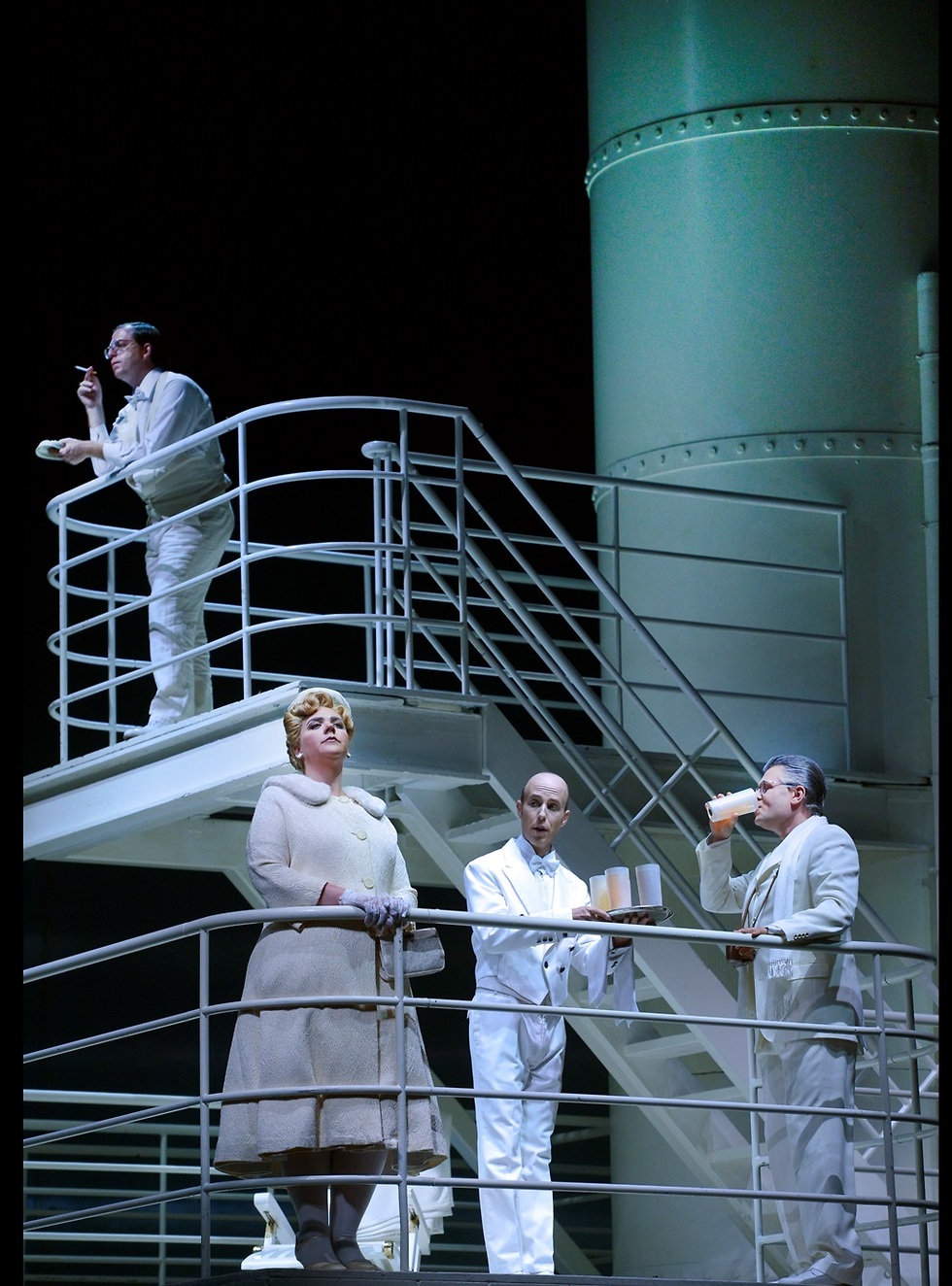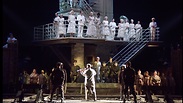
The Passenger: An opera about Holocaust remembrance
Based on a novel by Polish journalist, author and WWII resistance fighter Zofia Posmysz, The Passenger tells of the suffering of concentration camp inmates determined to deny the Nazis control of the human spirit
For Holocaust Memorial Day, the Israeli Opera presented The Passenger — a melancholic production in two acts about women from all over Europe, imprisoned at Auschwitz where they try to maintain their humanity in the face of the Nazi horrors.
The plot is based on the novel Passenger, and the 1959 Polish radio play The Passenger from Cabin Number 45, by Polish journalist, author and WWII resistance fighter Zofia Posmysz. It was adapted to the big stage by Mieczysław Weinberg.
Some two decades after the war, a German couple, Walter (David Danholt) and Lisa (Daveda Karanas), are sailing to Brazil where Walter will take up a diplomatic post. When Lisa, a former Nazi guard, recognizes a passenger as a former Auschwitz inmate, Martha (Adrienn Miksch), who she believes died in the camp, she becomes anxious and shares the information with her husband, who is mostly concerned about the effect the matter will have on his career.
Lisa, the ex-Nazi, lives in fear of being discovered by her former victims. She must also deal with any fallout from her husband learning about her dark past. The hunter becomes the hunted as the Nazi recoils in fear whenever the mysterious passenger nears. But the identity of the passenger remains a mystery and the show concludes on an ambiguous note.
In the concentration camp, we learn that Lisa is manipulative and sometimes behaves kindly towards the inmates in order to further control them. But the inmates still hang on to their human spirit and manage to commit small acts of defiance against the Nazis.
In one incident, a woman is tortured after a note written in Polish is found in her possession which the guards believe to be a correspondence with the resistance forces. Martha is selected to translate it and she deliberately and believably makes it out to be a love letter, thereby saving the women's life.
The Passenger is primarily about remembrance, not revenge or grief. Martha cannot come to grips with the crimes of her past and the audience witnesses how it torments her.
The inmates are from all over Europe and they tell each other about their respective backgrounds and cultures. In one stirring scene, a prisoner from France teaches French to a fellow inmate from Russia, as they exchange tales about their homeland.
The set is split in two — the upper part is a brightly lit, streamlined upper deck of a ship while down below there are dark, gray barracks and a web of railroad tracks that have come to symbolize the Holocaust.
In the opera's climactic scene, Martha sings a beautiful soliloquy about life and beauty. She declares that the inmates' suffering must never be forgotten and the perpetrators never forgiven.
Lyrics are sung in the native languages of the inmates: Polish, Czech, Russian, German, French, English and Yiddish; English and Hebrew Surtitles.
The show debuted on April 30 and there were a total of six performances over the course of a week.
Next up at the opera: Cosi fan tutte, running through middle of June and Simon Boccanegra, debuting in July. Also, Verdi's "Jewish" opera showcasing King Nebuchadnezzar: Nabucco in Jerusalem on June 20.










